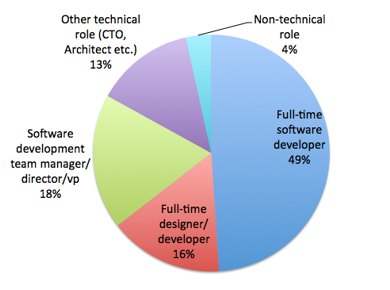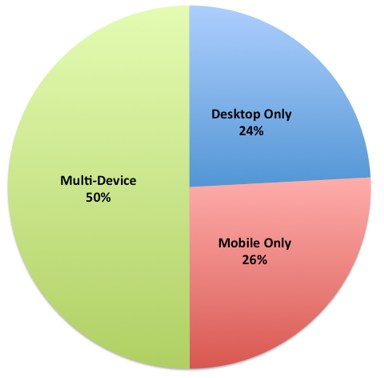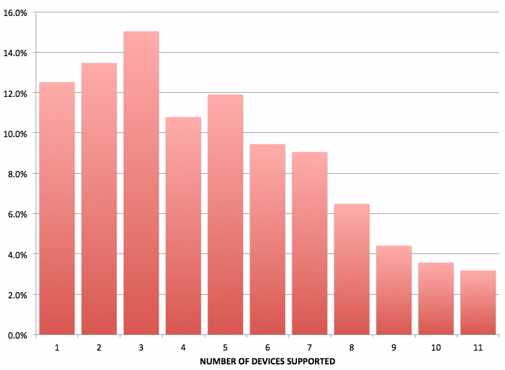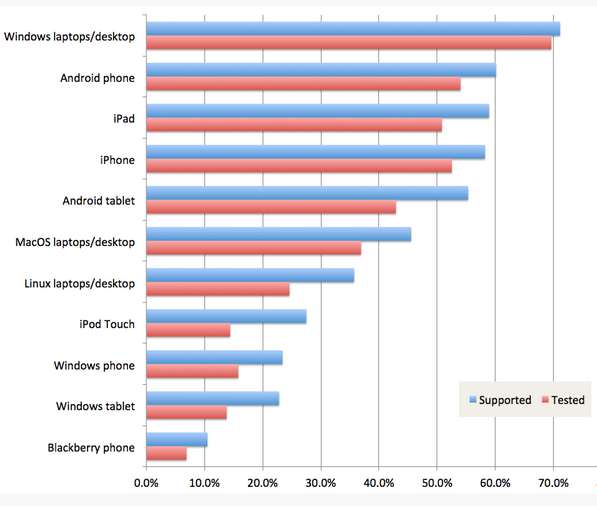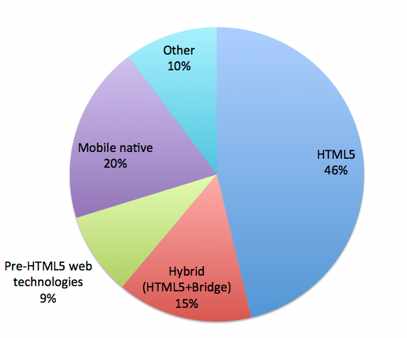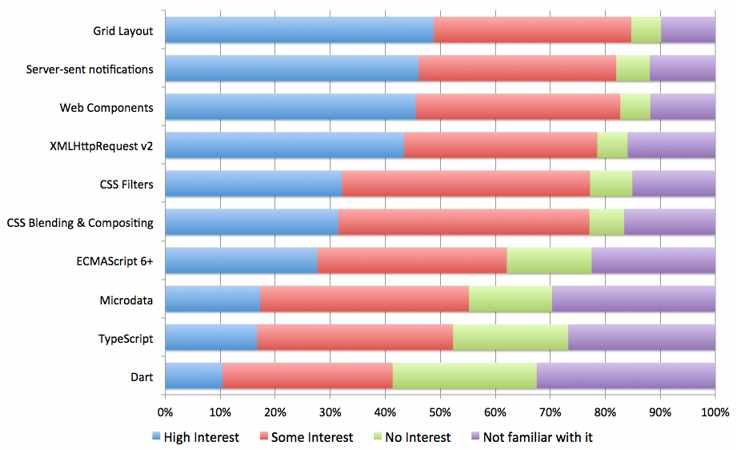| Senchas State of HTML5 |
| Written by Janet Swift |
| Wednesday, 26 February 2014 |
|
Half of HTML5 developers support both mobile devices and the desktop, with the typical developer supporting their apps on Windows classic, MacOS, iPhone, iPad and at least one Android phone. These findings come from tools vendor Sencha which surveyed a sample of 2,128 business application developers from its HTML5 development community during December 2013 and January 2014. The survey population comprised two thirds full-time developers or designer/developers. A further one-third manage development teams or hold technical roles such as Architect or CTO.
In terms of geographic diversity, around a third each came from North America, Europe and Rest of World. Exactly half of developers are targeting both desktop and mobile targets for their applications Developing solely for mobile or solely for desktop is now a specialty pursuit with the balance being just in favor of mobile:
Only 12% of those surveyed restricted their apps to a single device and the median number of devices supported was four:
While the single most popular device for developers to support for their applications remains the traditional Windows laptop/desktop, Sencha commented on the fact that there is now "impressive" diversity of additional devices that developers are also targeting. Android phones are the second most popular target device for application developers at 60%, with iPad and iPhone following closely in the high fifty percents. Windows phones and tablets fall below Linux laptops/desktops as supported devices:
(click in chart to enlarge)
Over 46% of developers surveyed are using HTML5 technologies delivered via web browser, but an additional 15% are primarily deploying to mobile using hybrid packaging technologies such as Apache Cordova. Only 20% of the developers surveyed have switched from web technologies to native mobile technologies. Interestingly, 10% of developers are developing their applications with a long list of alternative technologies such as C++, .NET, Flash/Flex, Java, Silverlight, or pure server-side approaches like PHP with minimal front-end experience
Sencha reports that the top three reasons why developers choose to develop with HTML5 are the ability to use a single code base to reach their entire audience, the higher productivity of development with web technologies and the ability to reuse existing web development skills. It also reveals that those who choose to develop with native mobile technologies, the top reasons to write native applications are a perception of higher performance, the ability to produce a look and feel that matches the platform, and the ability to secure application data using mobile device managers. Sencha also asked devs about their interest in and awareness of an assortment of a range of upcoming features for the web and discovered a wide disparity in There is a fair degree of enthusiasm for Grid layout, server-sent notifications and web components. And on the other end of the spectrum there is both lower awareness and lower enthusiasm for both Dart and TypeScript: Google and Microsoft’s respective entries in the “better JavaScript” category.
(click in chart to enlarge)
Commenting on these results Sencha said: There is a fair degree of enthusiasm for Grid layout, server-sent notifications and web components. And on the other end of the spectrum there is both lower awareness and lower enthusiasm for both Dart and TypeScript: Google and Microsoft’s respective entries in the “better JavaScript” category.
 More InformationThe State of HTML5 Development in the Enterprise Related ArticlesIntel pushes HTML5 for Cross Platform Development Which HTML5? - WHATWG and W3C Split W3C Announce HTML5 To Be Ready Nearly A Decade Early How HTML5 Adoption Impacts Apple
To be informed about new articles on I Programmer, install the I Programmer Toolbar, subscribe to the RSS feed, follow us on, Twitter, Facebook, Google+ or Linkedin, or sign up for our weekly newsletter.
Comments
or email your comment to: comments@i-programmer.info
|
| Last Updated ( Wednesday, 26 February 2014 ) |
